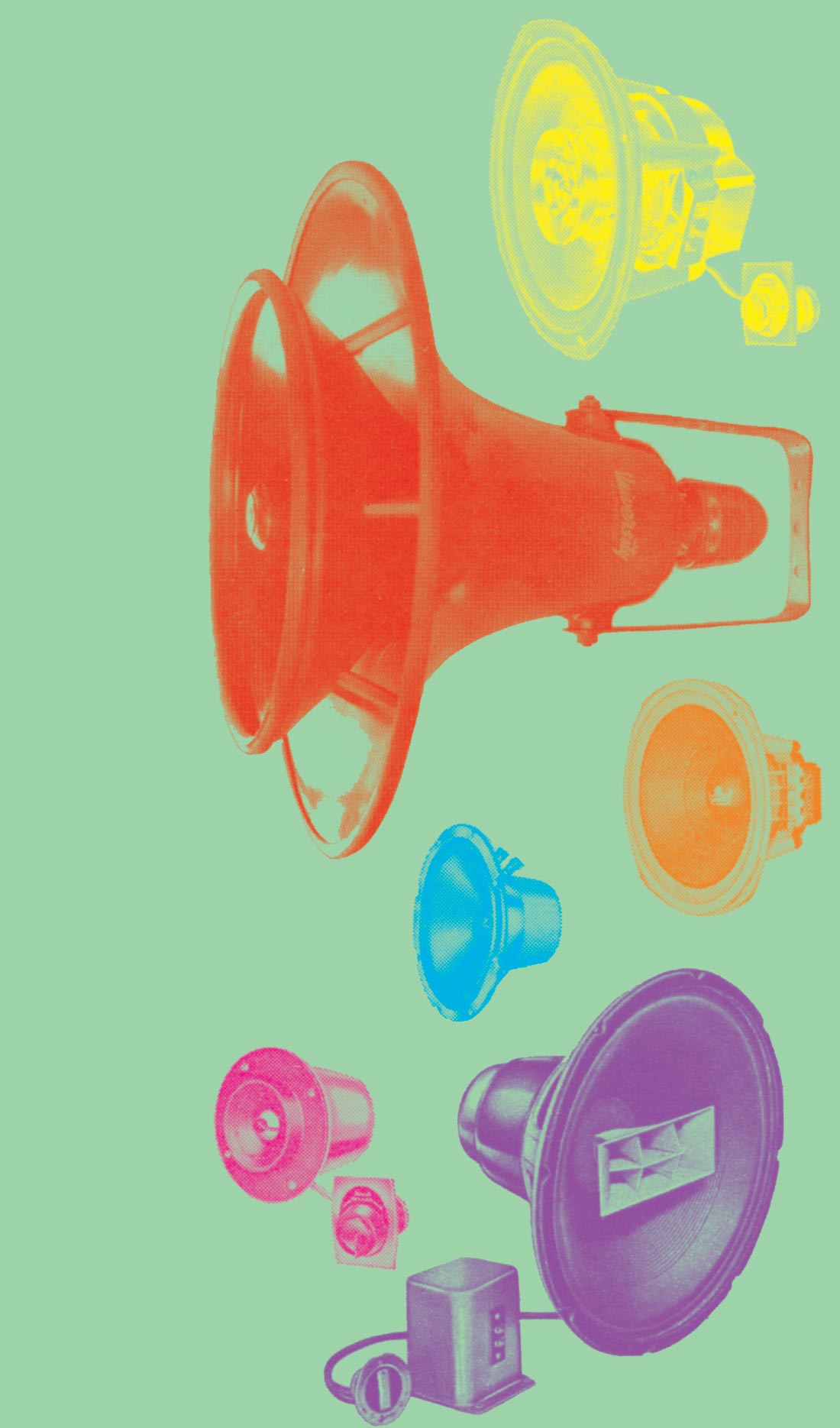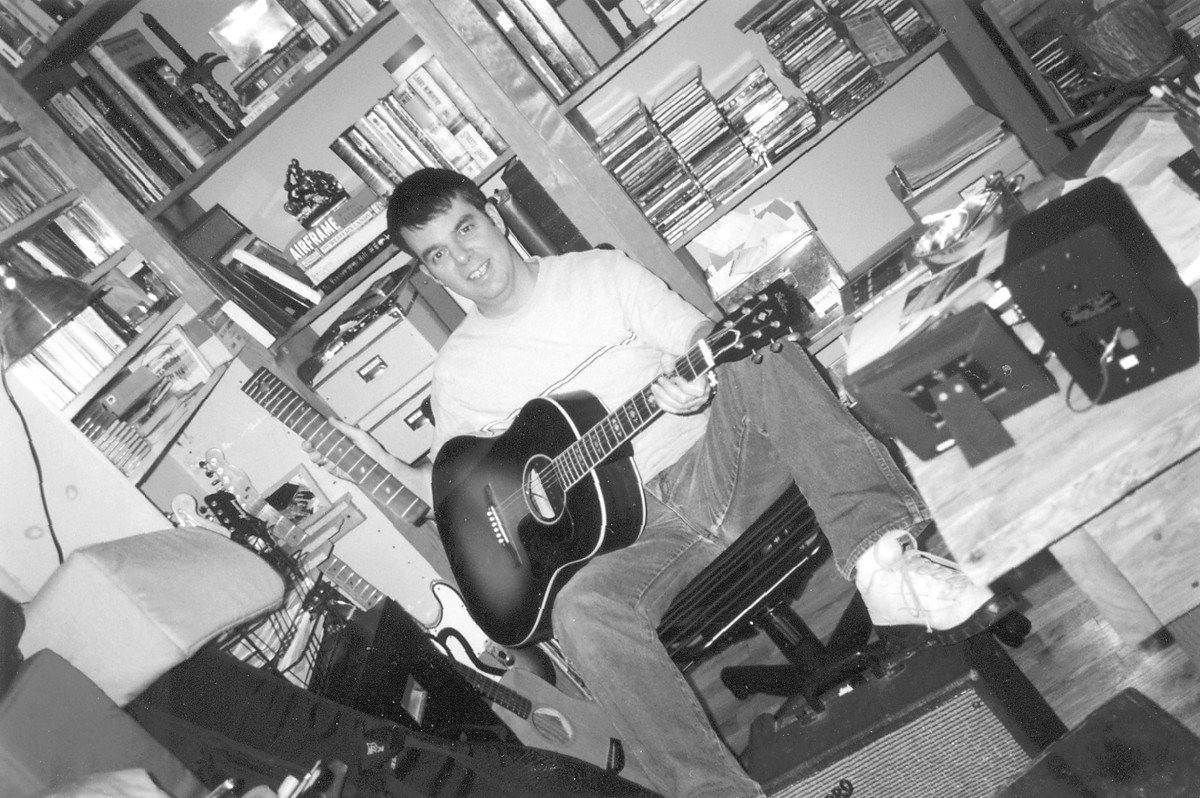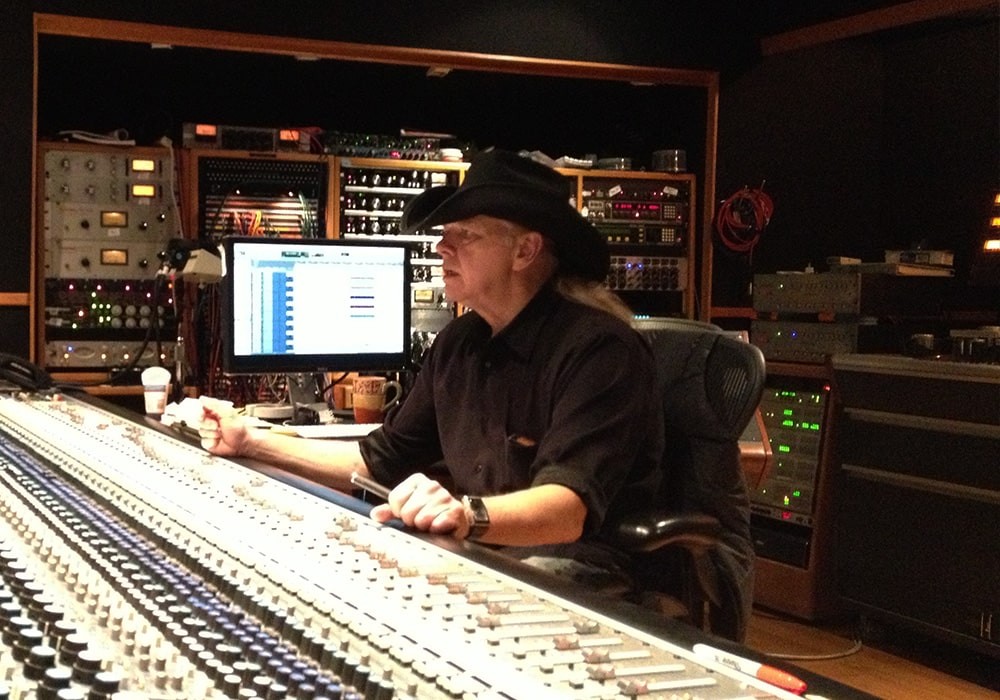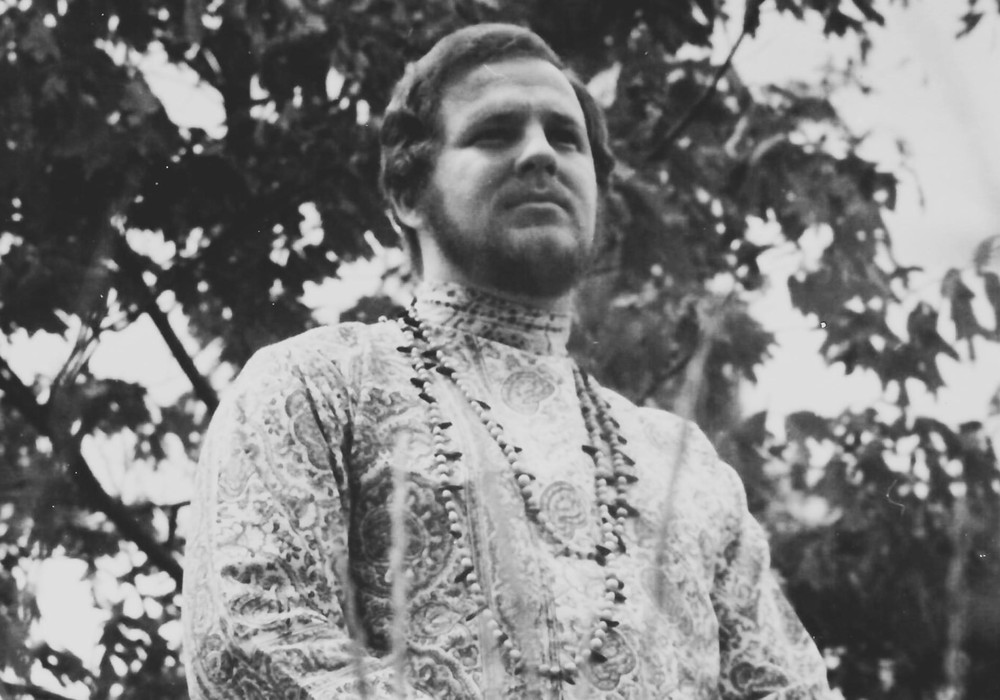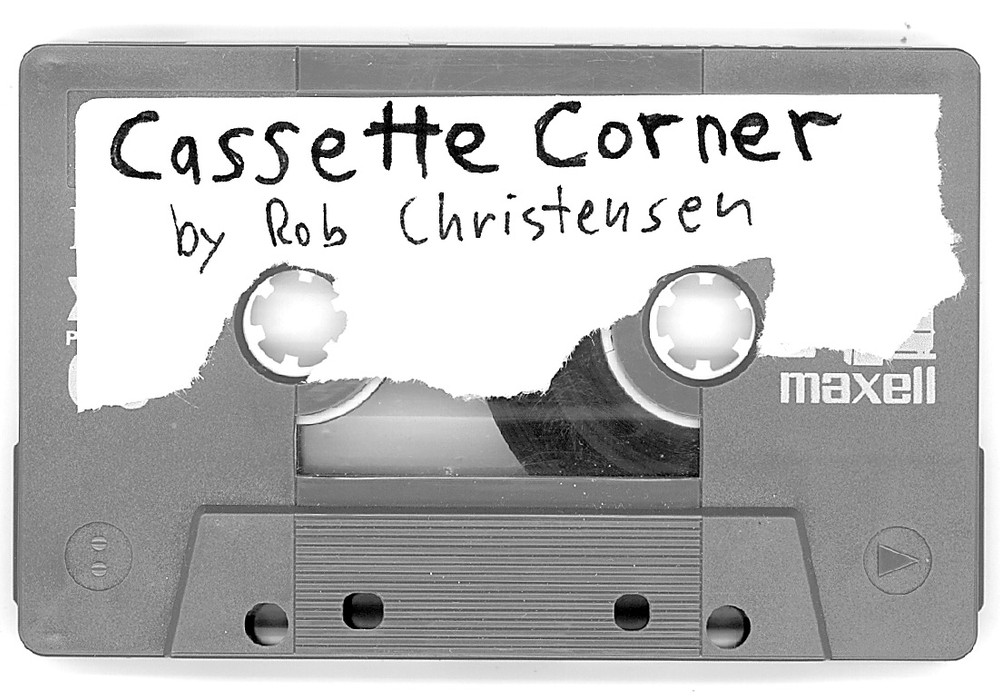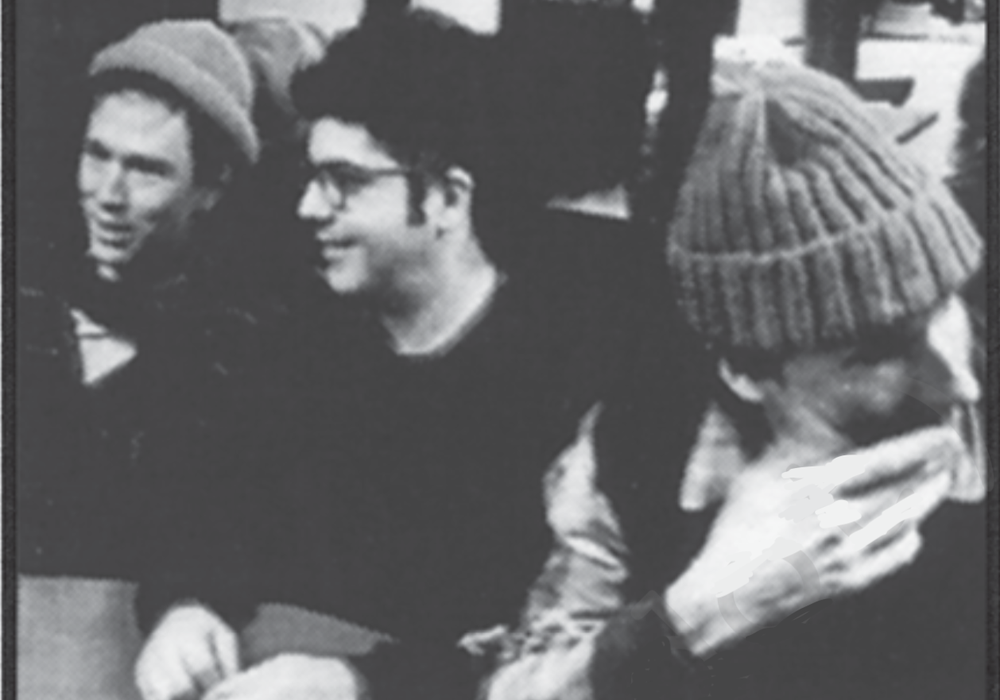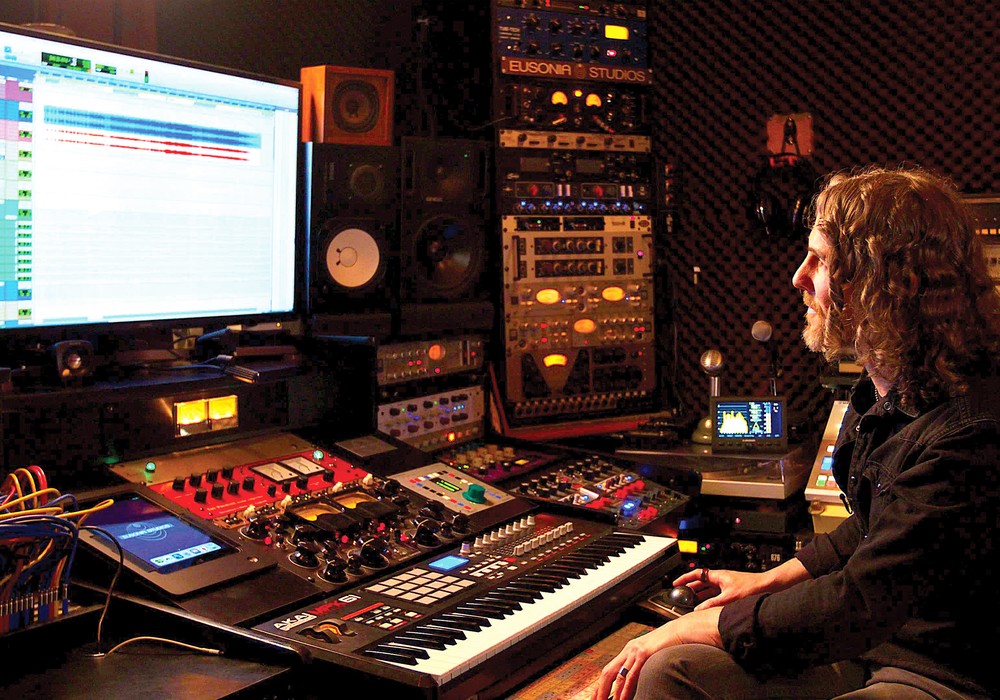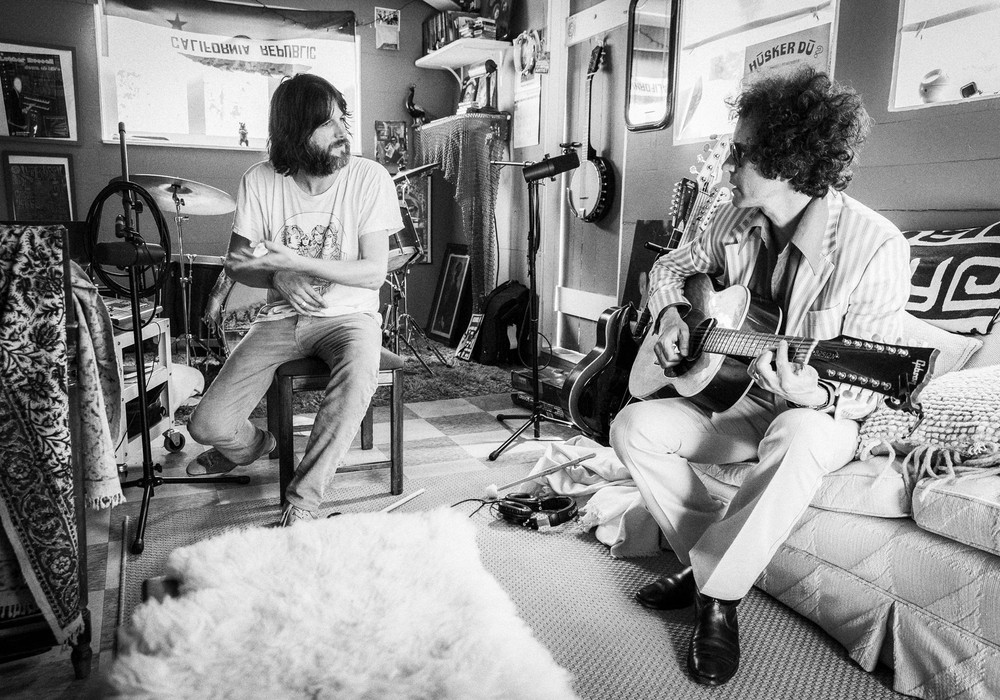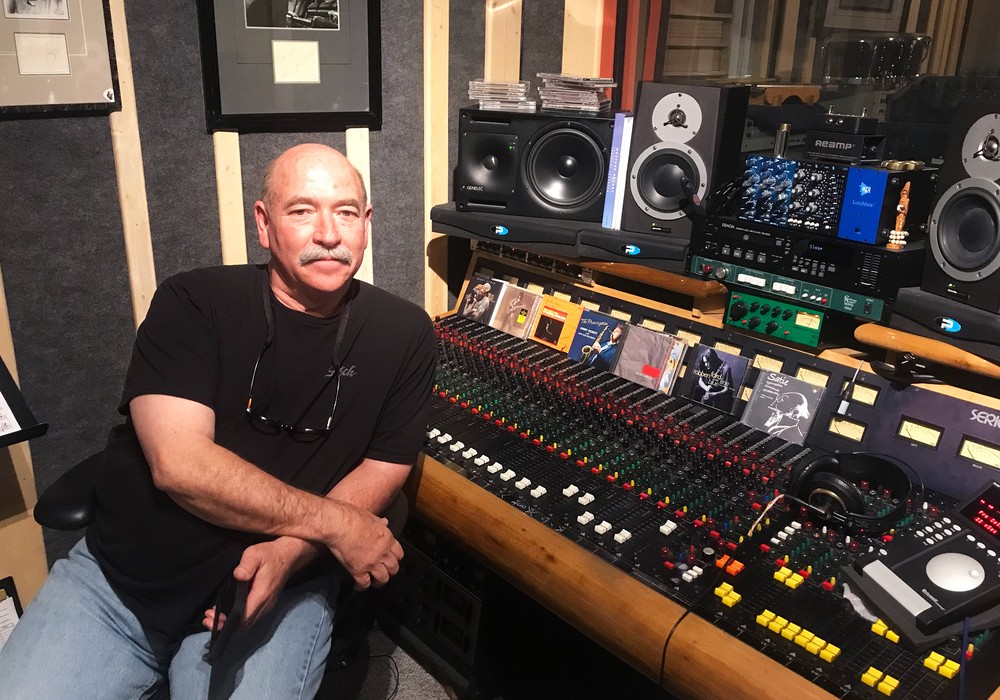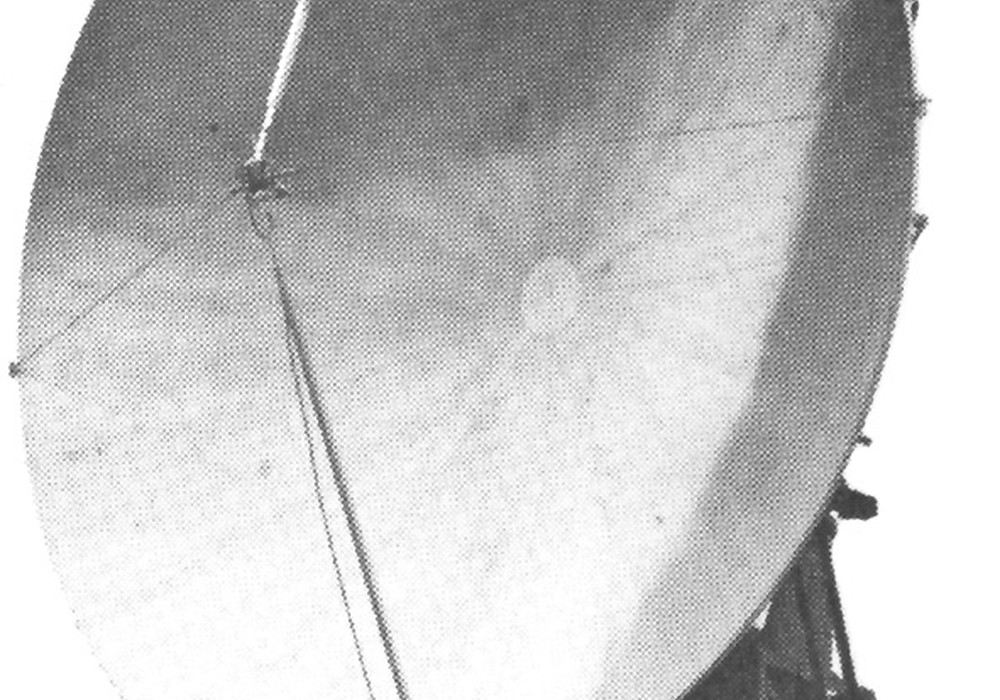Eric Ambel started his professional career writing and playing guitar as a Blackheart and a Del Lord. Now a producer and musician, he has worked with many great artists including Nils Lofgren, Mojo Nixon, Steve Wynn, Blood Oranges, Blue Mountain, Syd Straw, Simon and the Bar Sinisters, and Go To Blazes. He keeps busy producing records out of 33 1/3 Recording Studios in Brooklyn, which is housed in a turn-of-the-century bank building with 2000 sq. ft. and 20' ceilings. The studio is based around a vintage Neve console, modern tube and discrete Class A analog recording gear, and an exten- sive collection of vintage guitar amplifiers and keyboards. In his spare time, he runs two clubs in NYC and Raleigh, NC called "The Lakeside Lounge." Whew, what a busy guy! I met up with "Roscoe" in his amazingly-quiet East Village apartment where he lives with his wife, Mary Lee Kortes (whom he also produces) and his soon-to-be-setup mini studio...
What is your role as far as the technical aspects of recording go?
Most of the records that I produce I don't engineer. I'm pretty involved in the mix. I've worked with several people over the years... I really believe in producer and engineer being two separate jobs and if one guy is doing both of those things that one of those jobs is suffering. And I work with bands...I really love bands...and when you work with bands, it's not so much...sitting in there with one person overdubbing all the time. That kind of thing a guy could be engineering and producing but what my specialty is...I like to work with bands, I really respect bands. I think the way most record companies...ya know, they go to see a band play and they love the band, then they sign the band and they put the band in a recording studio with a guy who starts overdubbing them one at a time. It really reminds me of the police interrogation. Where the three kids get arrested for writing graffiti on a wall and they take 'em into an individual room, one at a time and hopefully their stories will match up. That's what the overdub process reminds me of. "Didn't you fall in love with this band because you saw them play and sing at the same time?!" It's really hard for me to understand. That answer's probably pretty wide and all over the place...I learned about engineering I think the way a lot of people do-from having a 4-track and breaking it down to the basic elements of recording which are, to me, EQ, compression, delay and reverb and putting the signal on tape. If a person can learn those things then you've pretty much demystified the whole process. And everything...comes from there.
Did you learn about the technical aspects of recording when you were in the studio as a musician with the Del-Lords in the '80s?
A little bit...I was in Joan Jett and the Blackhearts and then the Del-Lords, and being in bands in the '80s it was kinda the dark years of recording guitars. There's, uh...
...a lot of buried guitar...
...yeah...like here we were with the major label record deal and we're in there, in an expensive studio in LA and our money is being used by some engineer who's trying to figure out how to run the big Lexicon 240-whatever and I really vowed that I would someday be in charge of this thing so that wouldn't happen to me or the people I was working with.
So, it was you, the band, and an engineer, no producer?
No, there was a producer. He was excited about that big Lexicon box too.
How did you get hooked up with the producers that you worked with in the '80s?
With the Del-Lords, our first record was made with this guy, Lou Whitney from the band called The Morells which became The Skeletons and I still work with him to this day. This guy has a studio in Springfield, Missouri [The Studio]. His band backs a lot of people, like they back Syd Straw and Dave Alvin and Jonathan Richman, myself...a lot of different people on their solo records. That guy did the first [Del-Lords] record then the next couple we did with Neil Geraldo, who's Pat Benatar's husband and producer/guitar player. Great guy...something that I'll say fairly often is "The rule is there is no rule". One of the subheadings under that is "What worked for the last guy may not work for the next guy". He was applying what he was doing with [Pat] to us. In hindsight I don't think it was the best way to deal with a rock band.
So how did you start producing?
In the '80s I started seeing some bands around here. There was an afterhours bar called No Se No down on Rivington St...an unlicensed place...and the Del-Lords were already kinda happening, we had a coupla records out, and I started seeing these young bands and following some advice from Lou Whitney...if you got a band and you wanna record, one of the most basic things that you...
